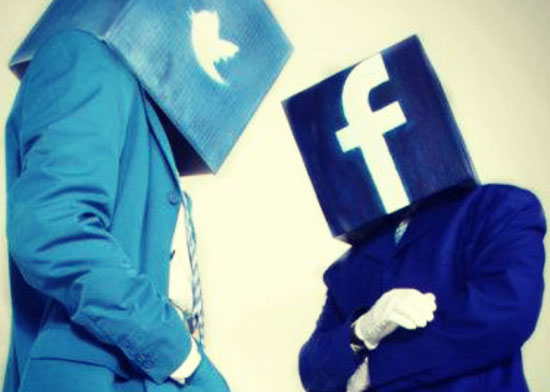Facebook and Google did ‘the bare minimum’ to comply with the Senate Intelligence Committee’s investigation into Russian misinformation
Tech Executives Testified Before Congress on Russian Activity on Their Platforms

Towards the end of 2017, executives from tech titans Facebook, Google and Twitter testified before Congress on alleged Russian interference into the 2016 presidential election through posting dubious advertisements on social media.
The ads in question were so few as to be statistically meaningless. Facebook, for example, admitted that 0,004 percent of social media content on the day of the election was generated by Russia-based trolls. However, they were expected to cooperate with Congress as much as possible in the hopes of securing favorable legislation and regulatory policy.
In addition to the ads allegedly discovered on these platforms, the social media companies were expected to discuss “organic content” – posts that were shared without being paid for.
Senator Amy Klobuchar (D-MI) asked the three representatives if they would be willing to support the Honest Ads Act she had co-authored, that would require social media companies to disclose what the source of political advertisers are – the same sort of requirements that exist on political advertisements in traditional media.
Unsurprisingly, none of the companies were willing to endorse a new regulation on them, insisting that they could self-regulate political advertisements to avoid violations of federal election law.
Google Director of Law Enforcement and Information Security Richard Salgado said during his testimony that Alphabet Inc. had discovered “18 channels with approximately 1,100 videos… [that] we suspect are associated with [Russian election interference].”
However, Salgado added, only 3 percent of the videos had more than 5,000 views – and more importantly, these 1,100 videos constituted only 43 total hours of content. For comparison, Salgado said, 400 hours of content are uploaded to Youtube every minute. Every day, YouTube users watch 1 billion (yes, with a b) hours of content. He also said that RT was a very popular channel on the platform.
In other words, the objectionable content Google discovered was a fraction of content available on YouTube so minuscule that it may as well not exist at all. All the same, Salgado said, “any misuse of our platforms for [election interference] can be very serious.”
During the question and answer section of the testimony, Twitter Acting General Counsel Sean Edgett said that Twitter “determined that advertising by [RT] and seven small accounts was related to the election and violated either the policies that existed at the time or that have since been implemented.”
Edgett did not mention, nor did anyone ask him about, RT’s allegation that Twitter approached them during the election and offered them a multi-million dollar advertising deal to use Twitter as RT’s main election platform.
“In order to entice RT to agree to the exclusive elections offer, Twitter promised a package of perks and bonuses,” wrote RT deputy editor-in-chief Kirill Karnovich-Valua.
“The offer included such things as: closed beta testing of new tools and products; a customized emoji-hashtag that would help RT stand out with special election coverage; customized analytics and research solutions; and a dedicated team of Twitter experts to help with content curation and media strategy.” RT balked at the cost of what Twitter was selling and declined the offer.
The most uncomfortable and memorable moment of the testimony came from Sen. Jack Kennedy (R-LA), who told the representatives of the three tech companies that “your power sometimes scares me.”
He then turned his attention to Facebook General Counsel Colin Stretch. “Did China run ads [on Facebook] in the last election cycle that tried to impact our election? Did Turkmenistan? How about North Korea?”
“No Senator,” Stretch replied. “I’m not aware of other foreign actors acting.”
“How can you be aware? You’ve got five million advertisers and you’re going to tell me you’re able to trace the origin of all those advertisements?” Kennedy fired. He pointed out that someone who wanted to run illicit ads would probably do so through multiple shell corporations, and asked how Facebook can parse through “four, five shell corporations” to determine who has and who hasn’t interfered in the election.
“The commitment that we are making” Stretch began, but Kennedy cut him off.
“No sir, I’m not asking about your commitment. I’m asking about your ability… I’m trying to get us down from La La Land here. The truth of the matter is, you have five million advertisers that change every month, every minute, probably every second.
You don’t have the ability to know who every one of those advertisers is, do you?”
The visibly flustered Stretch admitted that Facebook was not able to see through obfuscations such as shell companies – but Kennedy was not done.
“Let’s suppose your CEO came to you and said, ‘I want to know everything we can find out about Senator [Lindsey] Graham. I want to know what movies he likes, I want to know the bars he goes to. I want to know who his friends are. I want to know what schools he went to.’ You could do that, couldn’t you?”
Stretch replied that Facebook wouldn’t do that, but Kennedy again asked if Facebook was able to gather data on its users in that matter. “I’m saying you have the ability to do that, don’t you?” he asked with an accusatory point. “You can’t put a name and a face to a piece of data?”
“No Senator, we cannot,” Stretch replied.
“That’s your testimony under oath?”
“Yes, it is.”
According to reports released at the end of 2018, Tech companies such as Facebook, Google and Twitter did “the bare minimum” to comply with the Senate Intelligence Committee’s investigation into Russian misinformation on their platforms.
yogaesoteric
February 11, 2019
